The Lord Is with you
Opening Prayer
Thank you, Lord, for your will. Thank you for teaching us to trusyou in all things. No matter how hard it may be some days, please continue to give us the faith to believe in your will as supreme for our lives. Amen.
First Reading: 2 Samuel 7:1–5, 8b–12, 14a, 16
Responsorial Psalm: Psalm 89:2–3, 4–5, 27, 29
Second Reading: Romans 16:25–27
Gospel: Luke 1:26–38
Challenge for the Week
At the beginning of each day this week, offer this simple prayer with your whole heart: “May it be done according to your word.” In the evenings, take time to reflect on how that experience of offering your entire day went. Was it easy to offer your day to the Lord? Did
you forget? Did it change how you viewed the actions and events of your day? Each night, use these questions to spark a conversation with the Lord.
Journal
1. When is it especially hard to trust God’s plan for you? Why?
2. We are reminded at every Mass that the Lord is with us. When
is it hard to recognize that this is true? When is it easy?
3. How can you remind yourself of his profound presence in your
daily life?
Beyond Words
Imagine you are watching television and images of starving children come onto the screen. You are moved with pity and immediately decide to quit school or work to serve only the poorest, starving children. Everyone would praise you for such a noble sacrifice! You arrive at your new home and, after a short time, realize you weren’t built for a third world country, you don’t understand the culture or the language, and you are painfully homesick. Would you be angry with God for not blessing your spontaneous mission?
This analogy is imperfect, but it serves to make a point. If God calls you to a foreign mission field, he will also equip you with the desire, temperament, ability, knowledge, and passion to fulfill that vocation. If he doesn’t bless a mission of our own making, we can’t
get annoyed with him; he didn’t ask for the mission to begin with.
In this week’s first reading, King David sets out to do something amazing for God. The Lord has been dwelling in a tent for decades, and now David wants to rightfully honor the Lord. Before he can lay the first stone in a majestic temple, however, God teaches the powerful king a lesson.
God already had a plan for a perfect, everlasting temple and dwelling place not a house made by David but a new temple named Mary, wed to a man “from the house of David.” God’s plan, as St. Paul tells us in the second reading, was not reactionary; this plan was a “revelation of the mystery kept secret for long ages.” God did not need David’s favors, only his obedience. In this way, Mary’s response to the angel is the perfect prayer: “May it be done to me according to your word.” If you really want to please God, don’t tell God what you’re going to do for him; ask what he desires for you.
Related Fact
We hear that King David’s palace is “a house of cedar.” Cedar was the highest-quality wood available and the material of choice for royalty and builders alike. Cedarwood was free of knots, was incredibly durable, and gave off an aroma that eliminated the need for air fresheners (which wouldn’t be invented for another millennium or two). Cedar also repelled insects with its smell and taste. It was resistant to the fungus and disease that left other types of wood rotting after only a few years, thus saving money on both exterminators and future remodels.
Behind the Scenes
The phrase “The Lord is with you” is not just a blessing. Many times, when we hear the promise that God’s divine presence will be with a person, danger follows. Before Moses takes on the mighty Pharaoh, God promises, “I will be with you” (Ex 3:12). As Joshua leads the Israelites into the battle of Jericho, God again promises, “I will be with you” (Jos 1:5). When Gideon takes on the Midianites and Amalekites, an angel promises him, “The Lord is with you” (Jgs 6:12). When David prepares to fight Goliath on an apparent suicide mission, King Saul utters, “The Lord be with you” (1 Sm 17:37). When the appointed time had come, the God of the universe sent an angel to a virgin in Nazareth. The angel greeted the handmaiden with the phrase, “The Lord is with you.”
Today, at four points within every single Mass, the priest utters this blessing/warning to us, the modern faithful, to remind us of God’s presence and of the beautiful danger and mystery of the Mass we are about to take part in and the world we are about to enter back into.
Word Play
The word handmaid used by Mary in St. Luke’s gospel is powerful on
many levels. From the Greek and, later, Old English, a handmaid is simply a female servant. Mary’s decision and consent to become the Mother of God is overshadowed not only by the Holy Spirit but also by her immense humility, recognizing and professing that, although she has been picked by God for this unfathomable honor, she is but a humble servant.
This excerpt from One Sunday at a Time: Preparing Your Heart for Weekly Mass (Cycle B) is reprinted with permission of Ave Maria Press.





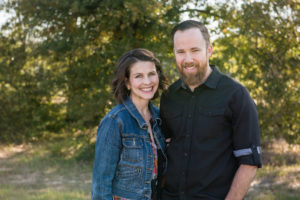

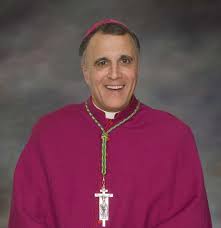
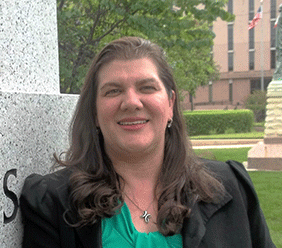
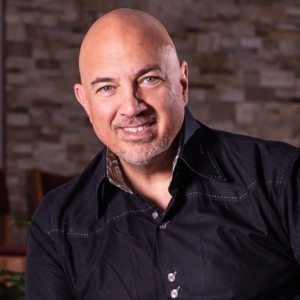
 Kimberly Kay Cox
Kimberly Kay Cox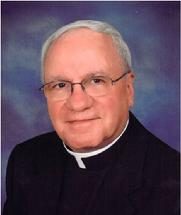







 Mark Mogilka
Mark Mogilka




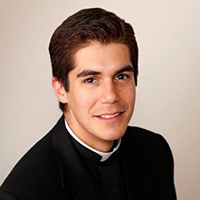
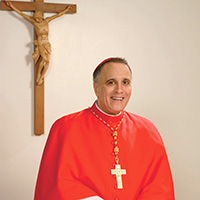







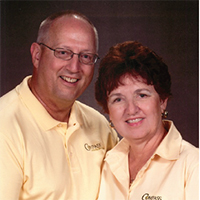
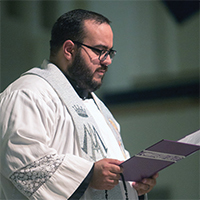
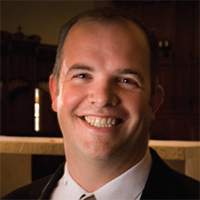


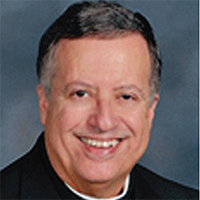

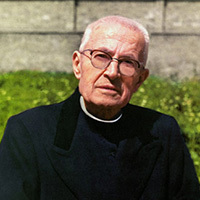


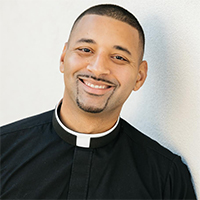




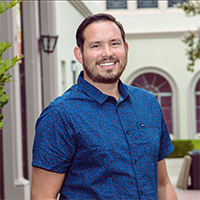
 Armando Cervantes
Armando Cervantes Anna Betancourt
Anna Betancourt
 Andrea Chavez-Kopp
Andrea Chavez-Kopp